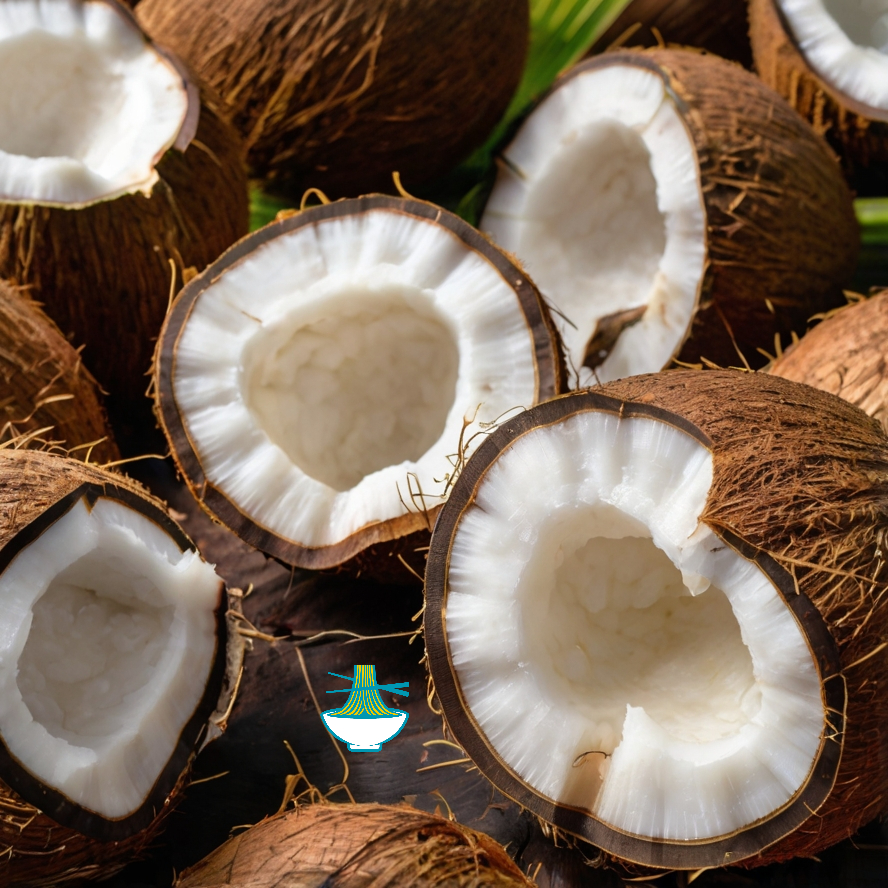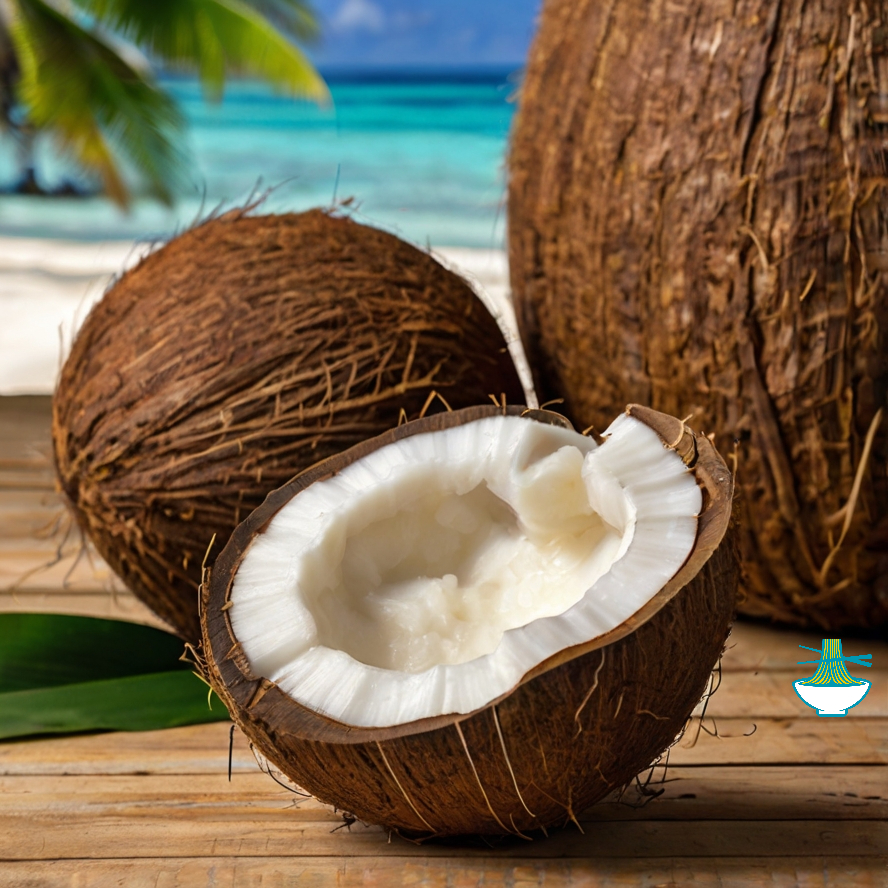Tuvaluan cuisine celebrates coconut's versatility, using it in various dishes from savory mains to sweet desserts. Historically, coconuts have been a staple in Tuvalu, reflecting the islands' reliance on local resources for sustenance. Today, traditional recipes blend with modern influences, offering a rich culinary heritage to explore.
Ingredients:
- Fresh coconut meat
- Coconut milk
- Fish or chicken (optional for savory dishes)
- Vegetables (optional for savory dishes)
- Sugar or honey (for sweet dishes)
Method:
1. Extract coconut meat from the shell and finely grate or chop it.
2. Squeeze coconut milk from the grated coconut using a muslin cloth or strainer.
3. For savory dishes, cook fish or chicken with vegetables in coconut milk until tender.
4. For sweet dishes, simmer coconut milk with sugar or honey until slightly thickened, then add coconut meat.
5. Serve savory dishes with rice and sweet dishes as desserts.
Nutrition Value:
1. Fresh Coconut Meat:
- Calories: Approximately 283 calories per 100 grams.
- Carbohydrates: About 15 grams per 100 grams.
- Protein: Around 3 grams per 100 grams.
- Fat: Approximately 27 grams per 100 grams.
- Sodium: Negligible amount.
- Cholesterol: Zero cholesterol.
- Vitamins: Rich in vitamins C, E, B1 (thiamine), B3 (niacin), B5 (pantothenic acid), and B6.
- Minerals: Contains minerals like iron, selenium, sodium, calcium, magnesium, and phosphorus.
- Nutritional Benefits: Provides energy, supports heart health, boosts immunity, promotes skin health, aids digestion, and provides essential nutrients.
2. Coconut Milk:
- Calories: Approximately 230 calories per cup (240 ml).
- Carbohydrates: Around 6 grams per cup.
- Protein: Approximately 2 grams per cup.
- Fat: Approximately 24 grams per cup.
- Sodium: Varies depending on preparation.
- Cholesterol: Zero cholesterol.
- Vitamins: Contains vitamins C, E, B1 (thiamine), B3 (niacin), B5 (pantothenic acid), and B6.
- Minerals: Rich in minerals like iron, copper, manganese, magnesium, and phosphorus.
- Nutritional Benefits: Provides energy, supports heart health, promotes skin health, strengthens bones, boosts immunity, and provides essential nutrients.
3. Fish or Chicken:
- Nutritional values vary depending on the type and cut of meat. For example:
- Salmon (fish): Approximately 208 calories per 3-ounce serving (cooked).
- Protein: About 22 grams per serving.
- Fat: Approximately 13 grams per serving.
- Rich in omega-3 fatty acids, which support heart health and brain function.
- Chicken breast: Approximately 165 calories per 3-ounce serving (cooked).
- Protein: About 31 grams per serving.
- Fat: Approximately 3.6 grams per serving.
- High in protein and various vitamins and minerals, including vitamin B12, niacin, and selenium.
4. Vegetables:
- Nutritional values vary depending on the type of vegetable used.
- Generally low in calories and fat, but rich in vitamins, minerals, and dietary fiber.
- Provide essential nutrients like vitamin C, vitamin A, potassium, and folate.
- Benefits include supporting overall health, promoting digestion, and reducing the risk of chronic diseases.
5. Sugar or Honey:
- Nutritional values vary depending on the type and amount used.
- Mainly provide carbohydrates (sugars), with minimal protein and fat content.
- Honey contains small amounts of vitamins and minerals like vitamin C, calcium, and iron.
- Sugar is typically devoid of vitamins and minerals.
- When consumed in moderation, can provide a quick source of energy but should be limited to avoid excessive intake of added sugars.


Comments